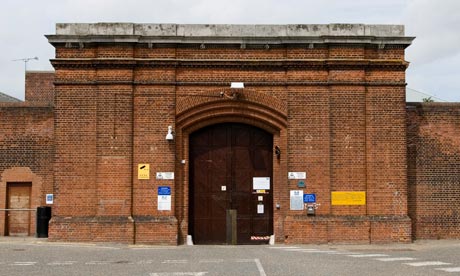Private sector prisons are an eye-watering scandal, union tells justice ministry
Privatisation is no longer based on efficiency – it's now ideological, says probation officers union
The privatisation of public services has been branded a scandal by unions who say that leaked tender documents reveal that the opening-up of the prison system to competition is "heavily biased" in favour of private firms.
The Ministry of Justice has introduced competitive tendering for five jails as ministers seek to expand the role of the private sector. They claim that competition will result in more efficient services and a better deal for the taxpayer, but unions fear that it will result in widespread redundancies, poorer working conditions and reduced pensions for workers.
Prison governors warn that expanding the private sector's role in the custodial system will create a profit-maximising culture that favours incarceration and cutbacks to rehabilitation.
Internal documents seen by the Observer show that the in-house public sector teams seeking to run the first five prisons subjected to the new competition process were forced to increase the total cost of their bids by more than 21%. An earlier document, in 2009, forced an increase of only 13%.
Unions claim the substantial "add-ons" rendered the public sector bids uncompetitive compared with those put forward by their private sector rivals. The Principles Of Competition document, updated in August 2010, applies to Birmingham, Buckley Hall, Doncaster, Featherstone II and Wellingborough prisons.
The document's terms have prompted claims that Tory ministers are seeking to outsource the entire prison system to the private sector. Currently in the UK, there are 13 private prisons holding 15% of the incarcerated population.
"Prison privatisation is no longer based on efficiency, it's now ideological," said Harry Fletcher, assistant general secretary of the probation union, Napo. "It's extraordinary that the public sector is forced to take into account huge additional costs. It puts public prisons at a total disadvantage. If this continues, there will be no state-run prisons in five years."
The documents will be studied closely by unions protesting against the introduction of the private sector into other public spheres, such as the NHS.
The Ministry of Justice argues the cost add on to the in-house bid creates a "level playing field" that allows the private sector to compete. But an email from unions to Michael Spurr, chief executive officer at the National Offender Management Service [Noms], which runs the UK's prisons, contests the claim. William Simpson, of the Noms trade union, told Spurr the add-ons were "eye-watering" and branded them a "scandal".
Spurr denied there was any bias in favour of the private sector. He said it was "appropriate" and "fair" that public sector bids should be compelled to increase the cost of their bids by 21% to "reflect the full cost of provision".
Hat-Tip to Tim Regency for the Tweet providing the link.


This reminds me of a story in the news a few weeks ago, although I am a little vague on the exact details.
ReplyDeleteThe story was that a prisoner was being transported just a few hundred yards from one place to another by prison van despite the fact that he was happy to walk. A whole bunch of papers tried to make out that this wasteful form was due to our 'barmy human rights laws.'
Even David Cameron picked it up and displayed it as a classic example of how human rights was having as 'chilling effect...etc...etc.'
Ironically it turned out that the reason the prisoner was being carted around in a van was because the private company enlisted to move prisoners wanted to craft an excuse for making money!
So not only was Human Rights being unfairly maligned, but the real culprits were private enterprise!
BTW, John, I retweeted a couple of links that you sent me and forgot to give you credit for finding them - sorry.